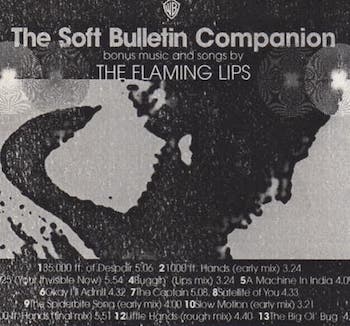

Fridmann too engages in this, with an example being those dirty-sounding cymbals you can hear throughout “Race for the Prize”. Compression can be used to tighten up performances, provide color to mixes, and to achieve hard, punchy sounds. I also want to present this all with the caveat that dynamic range compression is not inherently a bad thing.

Only in the most extreme examples have I heard the program produce odd artifacts that would appear unintended in the album’s mix. While one may not be able to "declip" an album as one would be unable to "unbake a cake", I find the results here to be a convincible attempt at doing so. In my edits, it’s important to note that the dynamics are not being restored with the "Perfect Declipper" program that I use, but rather, they are being approximated. You can see a few examples of my edits here: I find that it provides enough space for me to enjoy the music without being bombarded with ridiculous amounts of compression, like in his recent mixes for the band Baroness or The Flaming Lips’ At War with the Mystics. For the most part, I don’t have much issue with the compression on this album. I attempted to fix up the compression on this release with a program called “Perfect Declipper”, can not only help alleviate clipping, but also much of the dynamic range compression that occurs during mastering! In this case, I was able to turn the dynamic range of the album from 6 into 11. Music that has faced a high degree of dynamic range compression in general can also be fatiguing to the ear. I don’t believe this album clips, thankfully (clipping can produce audible distortion, often manifesting as hiss).ĭave Fridmann, however, engages with heavy amounts of dynamic range compression for aesthetic purposes, and much of that compression affects both the digital and vinyl releases of the album he works with. As with any medium, however, there is a peak loudness a signal can reach, so dynamic range compression (which makes the louder parts of the signal quieter while keeping the quiet parts quiet) and sometimes even clipping (attempting to push a signal beyond its peak) were used to make music as loud as possible. This is what I like to call a “dynamic edit” of The Soft Bulletin by The Flaming Lips! This album is pretty dynamically-compressed (not to be confused with data compression, which concerns MP3s and such), likely due to the involvement of Dave Fridmann, a connoisseur of heavy compression that joined the band as their go-to producer in 1990.įor those not in the know, the Loudness War is a phenomenon beginning in the mid-90s onward, in which music was mastered louder and louder, with the underlying reasoning being that louder music sells better.


 0 kommentar(er)
0 kommentar(er)
